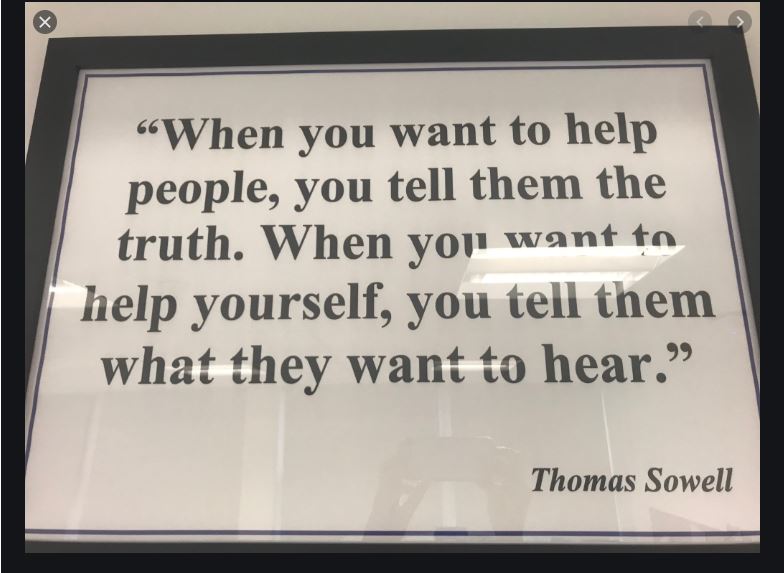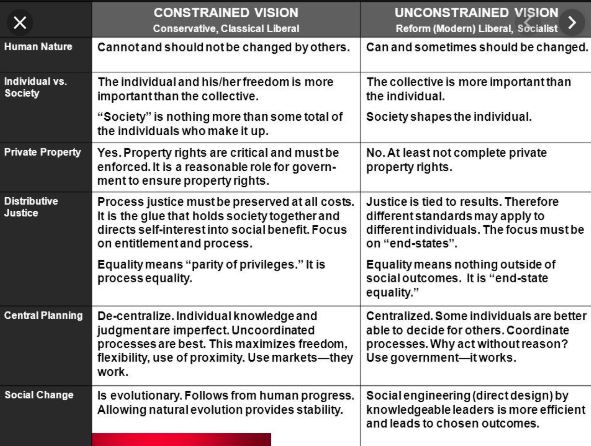Ok, hold on to your hats. Double Black Scholar/Public Intellectual Treat Thread.
1/n ending in END.
Coleman Hughes @coldxman has a great long essay on the deep independent thinker, Thomas Sowell. I start with a quote (courtesy of @Miss_Snuffy, Katharine Birbalsingh).
1/n ending in END.
Coleman Hughes @coldxman has a great long essay on the deep independent thinker, Thomas Sowell. I start with a quote (courtesy of @Miss_Snuffy, Katharine Birbalsingh).
Hughes' essay can be found here:
https://www.city-journal.org/thomas-sowell-race-poverty-culture
I will be going backnforth b/w Sowell and Hughes, mostly quoting one or the other.
https://www.city-journal.org/thomas-sowell-race-poverty-culture
I will be going backnforth b/w Sowell and Hughes, mostly quoting one or the other.
Sowell: "Too many academics write as if plain English is beneath their dignity."
Sowell embraced Marxism as a young scholar but then rejected it.
Sowell embraced Marxism as a young scholar but then rejected it.
Sowell, from his 1985 book on Marxism.
Would (does?) he hold a similar view of applied postmodernism, critical race theory, and intersectionality?
Would (does?) he hold a similar view of applied postmodernism, critical race theory, and intersectionality?
Sowell had a difficult childhood. Both of his parents died when he was young; he lived with a great aunt with whom he had a very difficult relationship.
(Personal aside: Despite being a secular Jew, this part of his background speaks me; my Mom died when I was young, and I had a very difficult relationship with my Dad; next tweet explains why I am telling you this).
Sowell: "“It was now very clear to me that there was only one person in the world I could depend on. Myself.”
(On her deathbed, my Mom said essentially the same thing to me.)
(On her deathbed, my Mom said essentially the same thing to me.)
Hughes: "Sowell’s life could be the raw material for a compelling biopic or documentary. Instead, his story languishes in relative obscurity. This is partly because Sowell...ended up somewhere between libertarian and conservative—an orientation decidedly unwelcome in Hollywood."
Hughes: "But he also does not wear his life story on his sleeve, and much in our culture today values “lived experience” over logical argument."
Hughes summarizing Sowell: "the [US] Founders assumed that humans are basically selfish and created a system of incentives and constraints that would impede selfish leaders from doing horrible things."
Hughes summarizing Sowell: "the French Revolution, based on “abstract speculation about the nature of man,” assumed the opposite—that man was perfectible&that government was the instrument of perfection. The very different consequences of these two revolutions...were no accident.
Hughes: "Dark irony (usually the result of some government program) is a frequent theme...[eg] as part of an effort to support farmers during the Great Depression, the fed govt bought 6 million hogs...&destroyed them-while millions of Americans were struggling to feed themselves.
Hughes: "A frequent theme...is...reversing the explanandum—the phenomenon to be explained. Take poverty. Many observe the enormous chasm between rich& poor nations &, understandably, wonder why poverty exists. But the real question...is why wealth exists."
In A Conflict of Visions, plausibly viewed as Sowell's Magnum Opus, he argues that many political conficts derive from conflicts between the Constrained and Unconstrained Visions
Sowell would argue that this difference explains why the left tends to institute more and more bureaucratic and govt and authority-based control systems.
EG, it could explain some of the left/right divide over:
govt lockdowns and mask-wearing mandates
environmental regulations
university "bias reporting" schemes
Title IX implementation
It could explain why so many U's have become so bureaucracy-heavy (left is running the show).
govt lockdowns and mask-wearing mandates
environmental regulations
university "bias reporting" schemes
Title IX implementation
It could explain why so many U's have become so bureaucracy-heavy (left is running the show).
Hughes: "Sowell’s great contribution to the study of racial inequality was to reverse the explanandum that has dominated mainstream thought for over a century."
Hughes: "Intellectuals have generally assumed that in a fair society, composed of groups with equal inborn potential, we should see racially equal outcomes in wealth, occupational status, incarceration, and much else."
Hughes: " That racial disparity is pervasive is seen either as proof that racial groups are not born with equal potential or that we don’t live in a fair society."
Hughes: "The suppressed premise—that statistical equality would be the norm, absent racism—is rarely stated openly or challenged."
Hughes: "In a dozen books, Sowell has challenged that premise more persuasively than anyone. 1 way he pressure-tests this assumption is by finding conditions in which we know, with near-certainty, that racial bias does not exist, and then seeing if outcomes are, in fact, equal."
Hughes: "For example, between white Americans of French descent and white Americans of Russian descent, it’s safe to assume that neither group suffers more bias than the other—if for no other reason than that they’re hard to tell apart."
Hughes: "Nevertheless, the French descendants earn only 70 cents for every dollar earned by the Russian-Americans. Why such a large gap? Sowell’s basic insight is that the question is posed backward."
Hughes: "Why would we think that two ethnic groups with different histories, demographics, social patterns, and cultural values would nevertheless achieve identical results?"
Hughes: "Sowell notes, too, the cases of a minority group with no political power nevertheless outperforming the dominant majority oppressing them. His favorite example was the successful Chinese minority in Southeast Asia."
Hughes: "But he also has written about the Jews in Europe, the Igbos in Nigeria, the Germans in South America, the Lebanese in West Africa, and the Indians in East Africa."
Hughes: "The phrase “the myth of the model minority” gets repeated so often that we mistake it for an explanation. It’s not a myth that some American minorities have higher incomes, better test scores, and lower incarceration rates than white Americans."
Hughes: "In three thick volumes published in the 1990s—Conquests and Cultures, Migrations and Cultures, and Race and Culture—he examined the role that cultural difference has played throughout world history."
Hughes: "Sowell documents the fact that slavery, America’s “original sin,” has existed on every inhabited continent since the dawn of civilization. Without going back more than a few centuries, every race has been either slaves or enslavers—often both at once."
Hughes: "Preferential policies provide another example. What we Americans euphemistically call “affirmative action” has existed longer in India than in America. Malaysia, Sri Lanka, China, and Nigeria have all had it, too."
Sowell: "I haven’t been able to find a single country in the world where the policies that are being advocated for blacks in the United States have lifted any people out of poverty.”
Hughes: "Like others with similar views on race, Sowell has encountered countless smears, though the usual avenues of attack—accusations of racism, privilege, and all the rest—have not been available."
Hughes: "To such people, the existence of a man like Thomas Sowell will always be a puzzle...But the question is not why...Sowell...came to hold the views that he did. The question is why one would expect a mind so brilliant to submit itself to received opinion of any kind."
END
END

 Read on Twitter
Read on Twitter




